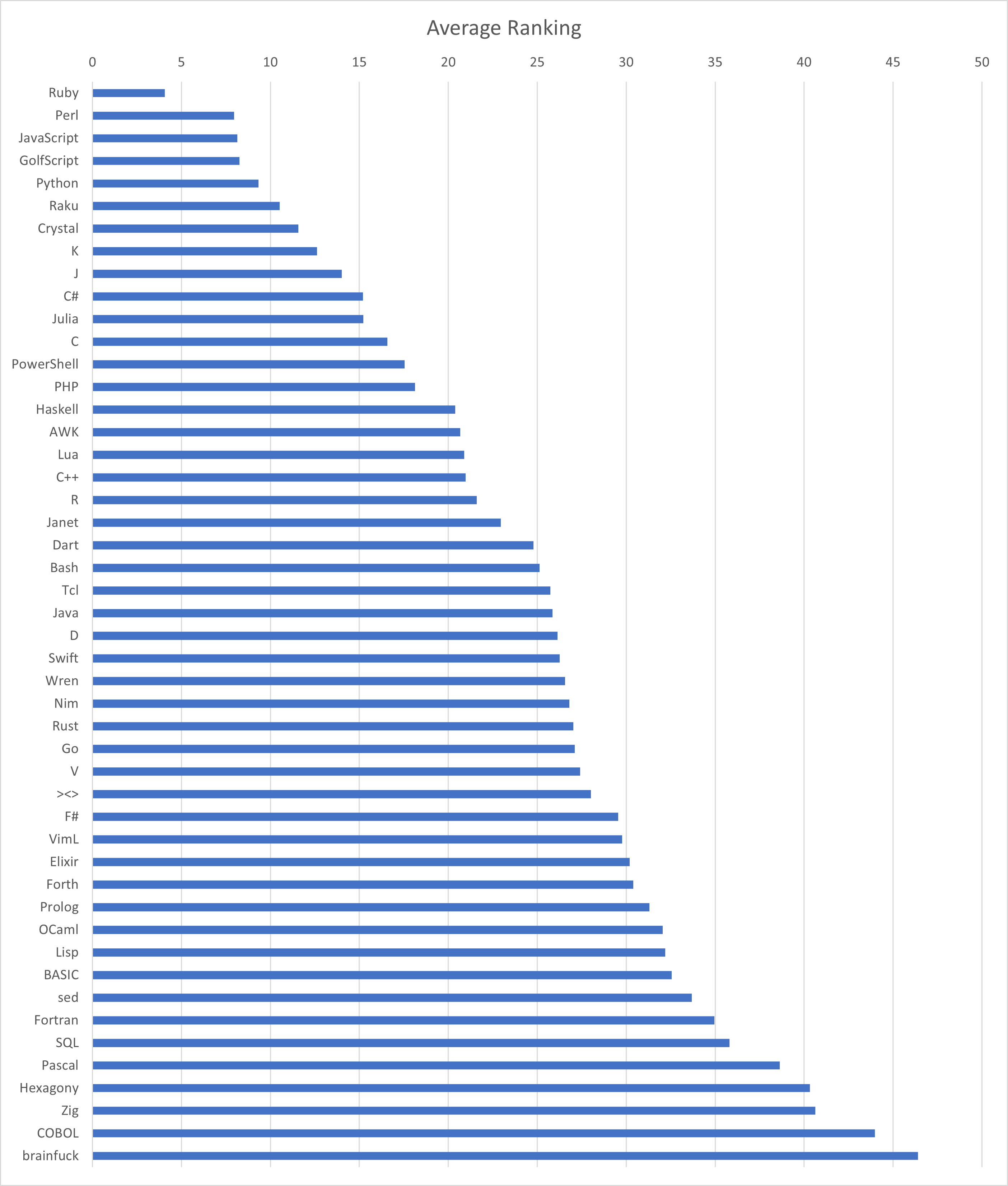I was looking at code.golf the other day and I wondered which languages were the least verbose, so I did a little data gathering.
I looked at 48 different languages that had completed 79 different code challenges on code.golf. I then gathered the results for each language and challenge. If a “golfer” had more than 1 submission to a challenge, I grabbed the most recent one. I then dropped the top 5% and bottom 5% to hopefully mitigate most outliers. Then came up with an average for each language, for each challenge. I then averaged the results across each language and that is what you see here.
For another perspective, I ranked each challenge then got the average ranking across all challenges. Below is the results of that.

Disclaimer: This is in no way scientific. It’s just for fun. If you know of a better way to sort these results please let me know.


They weren’t writing enterprise Java or they’d need a dozen factories and a few factory factories and probably a factory factory factory just to be safe.
Ya but then you’ll need a factory for all of those factories
You’re confused, I get it. You only need one factory factory as long as you sprinkle Inversion of Craziness (IoC) all over everything. Also, for this to work you must spread your code into as many files/directories as possible and also make sure you use really, really strict and verbose XML that doesn’t just define how your code runs but instead generates code itself.
I highly suspect the reason why Java didn’t seem to have as much code is because the authors were using proper enterprise Java which is mostly XML that can only be understood if your IDE takes at least 5 minutes to open and another 5 to open your project.